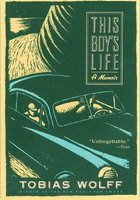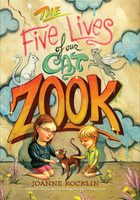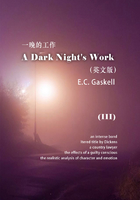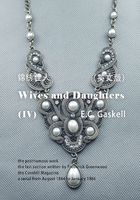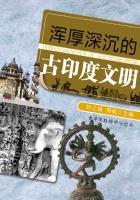The present edition includes all of Samuel Beckett's shorter plays written for the stage. Those written for radio, television and film are to be included in a separate forthcoming Faber volume (All That Fall and Other Plays for Radio and Screen). The plays are arranged in chronological order of composition, and each is prefaced by a note giving details of original publication and performance. An appendix includes Human Wishes, the extant fragment of Beckett's early unfinished play about Samuel Johnson and his circle.
*
Following the premiere of Ohio Impromptu at the the Ohio State University in May 1981, Beckett's American director Alan Schneider took questions from the audience. 'Why', he was asked, 'had Samuel Beckett stopped writing full-length plays?' 'They are all full-length,' replied Schneider, 'just some are shorter than others' – a response which argued for the cogency of the Impromptu as a complete theatrical experience. The term 'short', which Beckett came to prefer for these later plays (thus Breath and Other Shorts, Faber 1972) designated a discrete narrative and theatrical work, at once more and less than the traditional one-act play. A performance of Beckett 'shorts' or, increasingly, the offering of a single 'short' in isolation, has become a staple of the contemporary theatrical repertoire: striking imagistic pieces in and of themselves when produced in isolation, but resonating with each other to build a greater whole when grouped.
In 2006 Harold Pinter and Ian Rickson staged Krapp's Last Tape, the most famous and admittedly (at 55 minutes) the longest of Beckett's 'shorts', at the Royal Court Theatre as a stand-alone theatrical evening. Pinter and Rickson deviated from the strictures of the published text by eliminating much of Krapp's clownish demeanour, and excising the opening stage business, but such alterations coincided with the revisions Beckett had made for his own productions and with the play's extended image of confinement. David Warrilow may have begun the trend with A Piece of Monologue, a play (or piece) written for him by Beckett, which opened on 14 December 1980 at New York's La Mama ETC (Experimental Theatre Company) staged as an isolated, solo performance. And in 1994 Deborah Warner produced the 20-minute Footfalls at the Garrick Theatre, featuring Fiona Shaw, as a single bill performed twice-nightly.
More often, however, Beckett's shorts are grouped, with directors exercising their vision as much by the combination of shorts as by any individual directorial style. Thus Katie Mitchell produced a peripatetic evening of Beckett Shorts at the RSC in Stratford-upon-Avon in 1997, comprising Not I, Footfalls, That Time, A Piece of Monologue, Rockaby and Embers (the 1959 radio play) staged 'in a series of dark rooms through which the promenading audience are shepherded like visitors to the underworld' (Daily Telegraph). This version of Not I, with Juliet Stevenson as Mouth, was revived and broadcast as part of the BBC's contribution to the Beckett centenary in 2006. Likewise, American director JoAnne Akalaitis's production of four Beckett Shorts, with dancer Mikhail Baryshnikov, which opened in December 2007 at the New York Theatre Workshop, included a natural pair – the two mimes, Acts without Words, I and II – and an unusual linking of Rough for Theatre, I with Eh, Joe, the latter a television play (and as such not included in this collection) which has itself become part of the accepted stage repertoire, at least since Atom Egoyan's direction for the 2006 centenary celebration in Dublin, which employed a hybrid combination of live theatre, film, and 'live' film.
The two 'Acts without Words' are naturally paired, but Beckett's shorts do not lend themselves to arbitrary pairing or juxtaposition. As he wrote to George Reavey on 1 September, 1974: 'Have written a short piece (theatre): That Time. Not I family.' The emphasis in the new short was to be on listening not speaking. In Not I, he said, 'she talks'; in That Time 'he listens'. Because the later play was 'cut out of the same texture' as Not I, Beckett did not want the two to share a stage.[1] For Beckett, the eyes-closed, silent Listener of That Time did not consort well with the breathless monologuing Mouth of Not I. Other combinations were, however, conceived by Beckett in tandem: Footfalls was written specifically to accompany That Time, for the Royal Court production of May 1976 that marked Beckett's seventieth birthday.
In the matter of pairings, Peter Brook has perhaps been the most assertively independent of directors, with his 2006 offering of five Beckett 'shorts', staged first in French at his Théatre des Bouffes du Nord and then re-directed in English for the Young Vic in September 2007. Brook called his evening 'Fragments' – a title that in English suggests a certain incompletion – perhaps taking his cue from the first short of the evening, Fragment de Théatre, translated by Beckett as Rough for Theatre I. Brook retained the English cognate for the London production as well, although his 'Fragments' comprised an evening of five complete, fully realised works: Rough for Theatre I, Rockaby, Act without Words II, Come and Go, and neither, the last a short story that resembles a poem on the page but which Beckett insisted was a narrative (originally set to music by composer Morton Feldman). As a generic title 'Pieces' rather than 'Fragments' might have captured more of the spirit of the Beckettian short (even En attendant Godot in its original French was subtitled pièce en deux actes), and is the term most often used in conjunction with the shorts (thus Rockaby and other Short Pieces).
In a programme note, Brook described the theatre as offering Beckett in particular 'the possibility to strive for a unity in which sound, movement, rhythm, breath and silence all come together'. Beckett spent his creative life paring away at inessentials, to the extent that story as such is often occluded or subverted in his shorter plays. We never hear the secrets whispered among the three figures in Come and Go, for instance. The stage directions for Play instruct that it be run through at a speed ('Rapid tempo throughout') that in rehearsal dismayed Kenneth Tynan, the original producer and artistic director of the fledgling National Theatre Company, in spring 1964. Such courting of unintelligibility was again evident in director Alan Schneider's pacing of Not I for its premiere at New York's Lincoln Center in 1972, prompting the actress Jessica Tandy to circumvent her director and appeal directly to the author. Responding to her complaint that the play's suggested running time of 23 minutes rendered the work unintelligible to audiences, Beckett telegraphed back: 'I'm not unduly concerned with intelligibility. I want the piece to work on the nerves of the audience.' What Beckett was concerned with was the image created and the sensation evoked. As he wrote to Schneider, concerning the speaker ('Mouth'): 'I no more know where she is or why, than she does. All I know is in the text. "She" is purely a stage entity, part of a stage image and purveyor of a stage text. The rest is Ibsen.'[2] Beckett had earlier offered similar comfort to critic Colin Duckworth, sounding more like a sculptor than a playwright: 'I produce an object. What people make of it is not my concern.'[3] Such comments are not meant to suggest authorial nescience, rather that the author is uncertain of the significance his images may have for audiences or readers. Theatre, for Beckett, is not primarily a cerebral experience, and he was happy to cede the theatre of exposition to the likes of Ibsen, Shaw, and even Brecht in his more didactic works. The alternative to which, at its most radical, is Breath – the least theatrical and barest of the Beckett 'shorts': no actors, no story, and a running time of 23 seconds.
The appendix to the present edition includes the text of Human Wishes, a fragment of an unfinished play about Samuel Johnson and his circle (its title alluding to Johnson's poem The Vanity of Human Wishes), for which Beckett read extensively, filling three octavo notebooks with material during the course of 1936–37. He tried to reduce this to a play about the relationship between Johnson and Mrs Thrale, and more generally about Johnson's declining years. Only the fragment of an opening scene was composed, in which Johnson neither appears nor is mentioned. The dialogue authentically evokes Johnson's fastidious conversational style, however, as well as pointing forwards: 'Pause, repetitions and formal patterns are strikingly prophetic of Beckett's drama to come' (Ruby Cohn). The text was first published in Ruby Cohn, Just Play: Beckett's Theater (Princeton: Princeton University Press, 1980), and reprinted in (ed. Ruby Cohn) Disjecta: Miscellaneous Writings and a Dramatic Fragment (London: Calder Publications, 1983).
*
The process of textual transmission – the printing and subsequent reprinting of texts – is inevitably complicated by error. But theatrical texts, often published to take advantage of first performances, are subject to additional uncertainties, since they are not infrequently released to the public while the author may still be making changes based on discoveries in rehearsals. That Beckett was a perfectionist – and therefore incapable of calling his texts complete – is well documented, and each return to a text, variously for productions, for reprints, for translations, for anthologies, resulted in authorial changes. Beckett's letters to his publishers are consequently filled with requests to delay publication so that he can continue to make revisions based on performances, or with detailed corrections and changes made after submitting the typescript. Such changes in anticipation of publication are incorporated in the Faber texts of the plays, the present edition included. Revisions subsequent to print-publication are not included, however, unless these derive from errors in transmission, lines missed in reprinting, and the like.
As he began to work with his plays directly on stage, from the early 1960s onwards, Beckett invariably reconceived them, and much of his subsequent thinking about his texts in performance has been carefully documented in the four volumes of The Theatrical Notebooks of Samuel Beckett (1992–99) and Happy Days: Samuel Beckett's Production Notebook (1985). The reader is referred to these editions for all performance-based revisions to the texts. For the present Faber reader's edition, corrections have been made to three of the plays, as follows.
That Time
In the original Faber text (Ends and Odds, 1976) the final phrase of C's speech beginning 'till you hoisted your head' (p. 100) – 'who it was was there at your elbow' – has been restored (the repeated 'was' was omitted from the Collected Shorter Plays (1984, CSP) and Complete Dramatic Works (1986, CDW). In B's speech beginning 'stock still side by side', the phrase 'and all around too all still' has been restored (the 'too' was dropped in CSP and in CDW). In C's speech beginning 'the Library that was another another place', the repetition of 'another' was deleted in CSP and CDW but restored in the last English text of the play which Beckett revised – the English portion of the Suhrkamp tri-lingual edition (1976) which he used for his staging of Damals (That Time) in 1976; the repetition is likewise restored in the present edition.
Come and Go
The present edition restores the opening lines omitted from the UK first edition of Come and Go: A Dramaticule (Calder and Boyars, 1967), as follows:
VI: Ru.
RU: Yes.
VI: Flo.
FLO: Yes
These lines appeared in the first US edition, Cascando and Other Short Dramatic Pieces (Grove Press, 1968), and in the French and German translations. They were also corrected for the text which Beckett revised for the 1978 Schiller-Theater production of Kommen und Gehen (Come and Go), directed by Walter Asmus. Subsequent English texts by Faber were based on Calder and Boyars rather than Grove, so that both CDW and CSP – originated by Faber and offset by Grove – reprint the incomplete 1967 text. The omitted opening lines are included in the scholarly text of the play edited by Breon Mitchell (published in the journal Modern Drama in 1976, though his text introduces additional and unnecessary variants and so is not adopted here).[4]
It is also worth noting that, in the French and German texts of Come and Go, FLO invokes the two other characters – 'Ru. [Silence.] Vi. [Silence.]' – before uttering the play's last line, 'I can feel the rings.' This final incantation, which echoes the opening recitation of names, appears in English in the Mitchell text only, although it was also included in the German printed text which Beckett revised for the Schiller production. Beckett also changed the speaker at two points when he prepared the play for this production: RU's first speech was reattributed to FLO, and FLO's 'Dreaming of … love' was given to VI.
Play
After its Faber publication (1964) Beckett continued to revise the text for the British and French productions of that year. He wrote to Grove Press on 17 August 1964 broaching the possibility of a new version of the text, for Grove's Evergreen Review, which would take account of its theatrical afterlife: '[Fred] Jordan suggested publishing in Evergreen Review the text in extenso (as played in London and Paris).' Jordan confirmed to Beckett on 26 August, 'We are using the Faber and Faber text in the next issue of Evergreen Review, but I believe you asked to have one word changed. Could you indicate what the change is, giving me page and line number, assuming we both work from the same edition.' Beckett responded on 28 August, with several changes: 'Herewith corrections to Faber text of Play.' The Evergreen Review (ER)[5] is therefore the text for which Beckett made his final production-based revisions, although these were not incorporated into the Faber editions (prior to CDW and CSP). Nor, inexplicably, was ER the text from which Grove published in book form four years later – choosing rather to print from the Faber edition.[6]
Beckett made further revisions in June 1968, most of which were not included in the Faber revised 1968 reprint of Play and Two Short Pieces for Radio, nor in subsequent reprints (but were first incorporated into Grove's edition of Cascando and Other Short Dramatic Pieces, 1968). However, the majority of the corrections were eventually incorporated into the Faber collected editions (CSP 1984 and CDW 1986), with the exception of the requested excision of para. 2 in the endnote on 'Urns' – an excision which has been followed in the present edition.[7]CDW and CSP introduced various fresh anomalies: the line 'Get off me,' which followed W1's 'Or you will weary of me' (p. 58) – included in both Faber and Grove first editions – was omitted; Beckett's quirky 'astoundment' was changed to 'astonishment' (p. 55); the stage direction 'Vehement' was omitted between the repetition of 'Get off me' (p. 59); and 'old' was omitted from M's description of his women's abodes ('now in the one dear old place, now in the other') (p. 61). These omissions or deletions are here restored, on the basis of the ER text, which appeared before the American book publication of 1968 and before the revised Faber text of 1969, and should have been the copy-text not only for those publications but also for CSP and CDW.
Notes
[1] Enoch Brater, Beyond Minimalism: Beckett's Later Style in the Theater (OUP, 1987), p. 37.
[2] Maurice Harmon (ed.), No Author Better Served: The Correspondence of Samuel Beckett and Alan Schneider (CUP, 1998), p. 283.
[3] Colin Duckworth (ed.), En attendant Godot (Harrap, 1966), p. xxiv.
[4] Breon Mitchell, 'Art in Microcosm: The Manuscript Stages of Beckett's Come and Go', Modern Drama 19.3 (1976), 245–60.
[5] Evergreen Review No. 34 (December 1964), 43–7, 92.
[6] Cascando and Other Short Dramatic Pieces (New York: Grove Press, 1968), 45–63.
[7] The instruction runs as follows: 'Should traps be not available, and the kneeling posture found impracticable, the actors should stand, the urns be enlarged to length and moved back from front to mid-stage, the tallest actor setting the height, the broadest the breadth, to which the three urns should conform' (Faber, 1964, p. 24).


